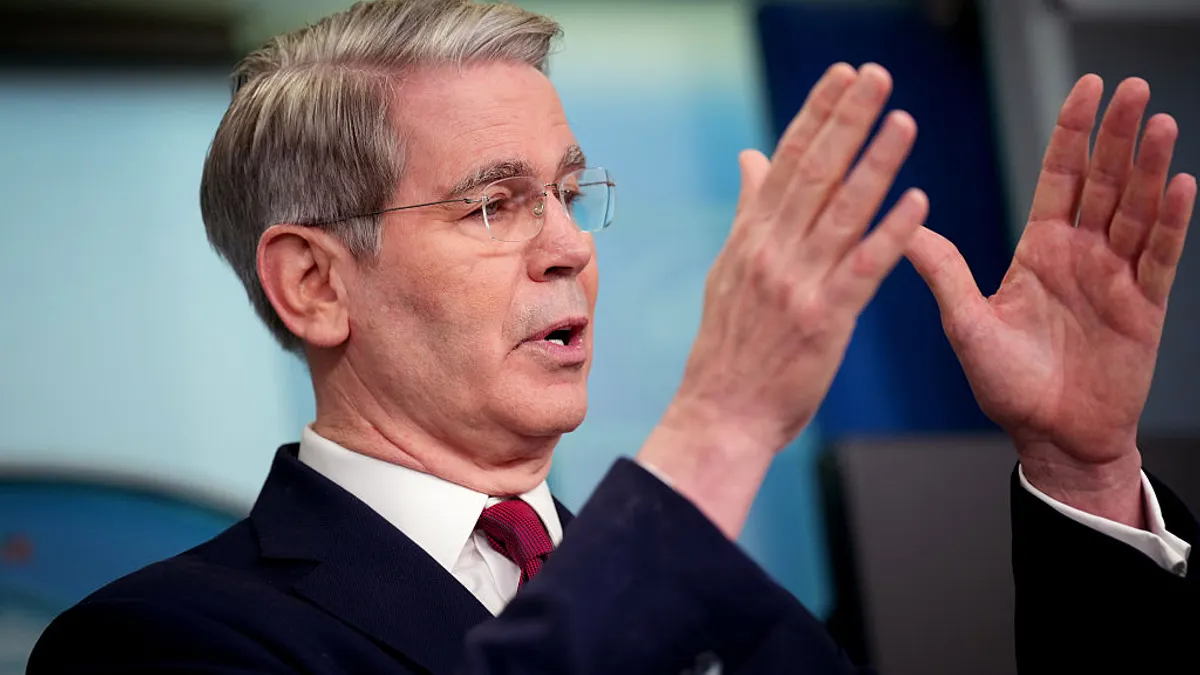Companies should brace themselves for a surge in fraud allegations as remote workers, feeling disconnected from their employers and with their eyes on big whistleblower rewards, are emboldened to bring wrongdoing to regulators, attorneys said last week in a webcast.
The Paycheck Protection Program (PPP), which extended loans to companies without the standard due diligence, could be a particularly big source of fraud allegations as the two-year mark nears when the first round of loans have to be repaid if companies don't qualify for forgiveness.
"The Biden administration is likely to be very aggressive," Phara Guberman, an attorney with Paul Hastings, said on a webcast hosted by the law firm.
Although it's too soon to be validated with concrete evidence, there appears to be a link between the rise of remote work and an increase in employees bringing suspicions to regulators, enforcement specialists say.
"When you feel disconnected from work, you feel more comfortable speaking up," Adam Waytz, a Northeastern University psychology professor, told Bloomberg.
Fraud surge
That feeling of disconnect might be behind a surge in fraud allegations brought by employees to the Securities and Exchange Commission (SEC) last year. The agency received almost 7,000 tips, the most ever and almost a third more than the previous year, SEC data show.
The agency lacks the resources to investigate all of the allegations, attorneys said, but it looked into enough of them to take a record number of enforcement actions last year — 715, resulting in $4.68 billion in penalties and disgorgement.
"We'll wait and see how much sustained impact [there is in these] reporting levels," Paul Hastings attorney Jane Yoon said.
At the start of the pandemic, when employees and employers were still getting used to remote work, the volume of allegations was flat, which would be expected, Yoon said.
"Probably just people trying to adjust to the remote environment," she said. "What we're seeing now is people getting more acclimated to the remote environment, and also correspondingly being a little more disconnected to their employers as a result."
The SEC's whistleblower program, created as part of the 2010 Dodd-Frank law, has helped fuel the increase, too, by encouraging employees to come forward if they suspect problems. The SEC paid out $175 million to 39 people last year, the most ever.
Employees take notice of that when they see these announcements in the news, the attorneys said.
Hasty loans
The PPP program could be especially plagued with fraud because hundreds of billions of dollars in loans were quickly handed out to companies on essentially an honors basis beginning last year.
The first round of loan funds had two-year terms, which means thousands of companies will be thinking about paying the loans back, if they can't get the money forgiven, as 2021 winds down.
"We're going to see a lot of investigations and a lot of referrals to DOJ," Guberman said.
Already the federal government has criminally charged some 80 business executives with fraud, she said.
That's expected to be just the tip of the iceberg.
"As we get near the deadline where people pay back funds or explain why they don't need to, that's really when everything's going to start," she said. "You're going to see a lot of whistleblower actions in this regard — 'My company shouldn't have taken the money. They didn't do what they were supposed to do,' or ‘They didn't really keep my job for as long as they were supposed to keep it.' I think that's going to be the source of a lot of investigations."
Banks can get into trouble, too, even though the federal government made it clear they could rely on the representations companies make on their application form.
"Lenders could be involved because of subpoenas," Guberman said. "They have to comply with the Bank Secrecy Act, and they'll want banks to assist. They could be on the hook. So, they're open to a lot of risk."
That's especially the case if they know something about the borrower beyond the representations that were made.
"Any release from the due diligence requirement will not excuse actual knowledge," Paul Hastings partner Matt Herrington said.
Anti-kickback violations are another area in which whistleblowers are expected to help fuel an increase in investigations, particularly in the pharmaceutical and healthcare spaces, said Yoon.
"Drug pricing continues to be an intense focus," she said. "Sophisticated, prominent prosecutor offices continue to look at arrangements between the pharmaceutical industry and pharmacy benefit managers... You're going to continue to see a DOJ focus on pricing-related issues."




















